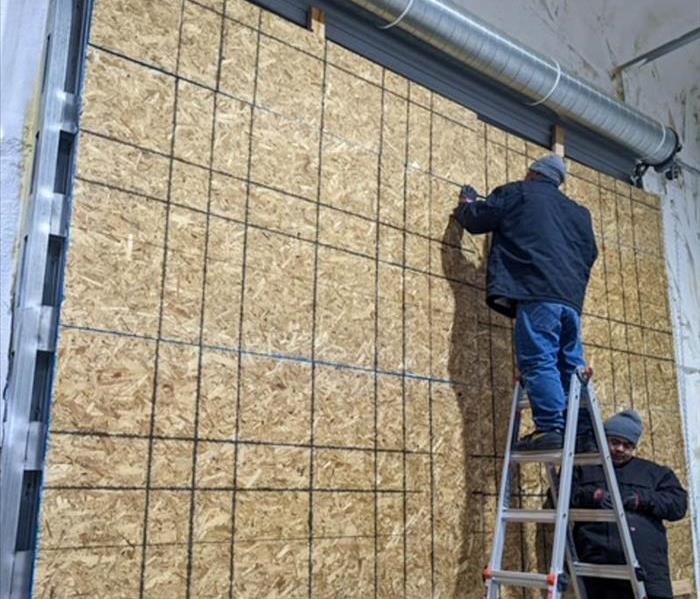The Role of HVAC Systems in Mold Growth
7/10/2024 (Permalink)
 Understanding how HVAC systems can impact mold growth is essential for preventing mold issues in your home.
Understanding how HVAC systems can impact mold growth is essential for preventing mold issues in your home.
Your HVAC (Heating, Ventilation, and Air Conditioning) system plays a crucial role in maintaining a comfortable and healthy indoor environment. However, if not properly maintained and cared for, HVAC systems can also contribute to mold growth. Understanding how HVAC systems can impact mold growth is essential for preventing mold issues in your home.
How Mold Spreads Through HVAC Systems
Mold spores, which are tiny microscopic particles, exist naturally in the air both indoors and outdoors. When conditions are favorable, such as when moisture and organic material are present, mold spores can grow into visible mold colonies. HVAC systems can facilitate the spread of mold by circulating spores throughout your home.
Humid environments, condensation, and moisture buildup within HVAC components provide a conducive environment for mold growth. Dust, dirt, and organic matter that accumulate within the system can also serve as a food source for mold.
Preventive Measures for HVAC Systems
Taking preventive measures to maintain your HVAC system and minimize the risk of mold growth is crucial. Here are some key steps to follow:
Regular Maintenance and Inspection
Schedule regular maintenance and inspection of your HVAC system to identify and address any issues promptly. This includes cleaning or replacing air filters, checking for leaks, and ensuring proper drainage. Regular maintenance helps maintain proper airflow, reduces the accumulation of dust and debris, and minimizes the conditions that promote mold growth.
Control Indoor Humidity
Controlling indoor humidity is vital for preventing mold growth. While HVAC systems can help regulate humidity to some extent, they may not be sufficient in humid climates or areas prone to high humidity. Consider using standalone dehumidifiers in particularly humid spaces or integrating a whole-house dehumidifier into your HVAC system to maintain optimal humidity levels.
Ensure Proper Ventilation
Proper ventilation is essential for preventing moisture buildup and mold growth. Ensure that your HVAC system is correctly sized for your home and that it provides adequate airflow throughout all areas. Proper ventilation helps eliminate stagnant air and, in conjunction with other preventive measures, can significantly reduce the potential for mold growth.
Keep Components Clean and Dry
Regularly clean your HVAC system's coils, drip pans, and drainage lines to prevent the accumulation of moisture and organic matter. It's important to remove any debris or standing water that may provide an environment conducive to mold growth. Additionally, ensure that the area around the HVAC system is clean and free from any potential sources of moisture.
Professional Assistance
If you suspect or have identified mold growth within your HVAC system, it's crucial to seek professional assistance. Mold remediation experts, such as those at SERVPRO®, can evaluate the extent of the mold problem, identify the source, and provide appropriate remediation strategies.
Addressing mold issues in HVAC systems requires specialized knowledge and expertise to mitigate the risk of further contamination. Trained professionals can clean and remediate the affected components, ensure proper disinfection, and provide recommendations for ongoing maintenance to prevent future mold growth.
Taking proper care of your HVAC system and understanding its role in mold prevention is essential for maintaining a comfortable and healthy indoor environment. By implementing these preventive measures and seeking professional assistance when necessary, you can reduce the risk of mold growth and enjoy the benefits of a well-maintained HVAC system.
For more information or assistance with HVAC-related mold issues, contact SERVPRO. Our team of experts is equipped to handle mold remediation and provide solutions tailored to your specific needs, ensuring a safe and mold-free living space.






 24/7 Emergency Service
24/7 Emergency Service